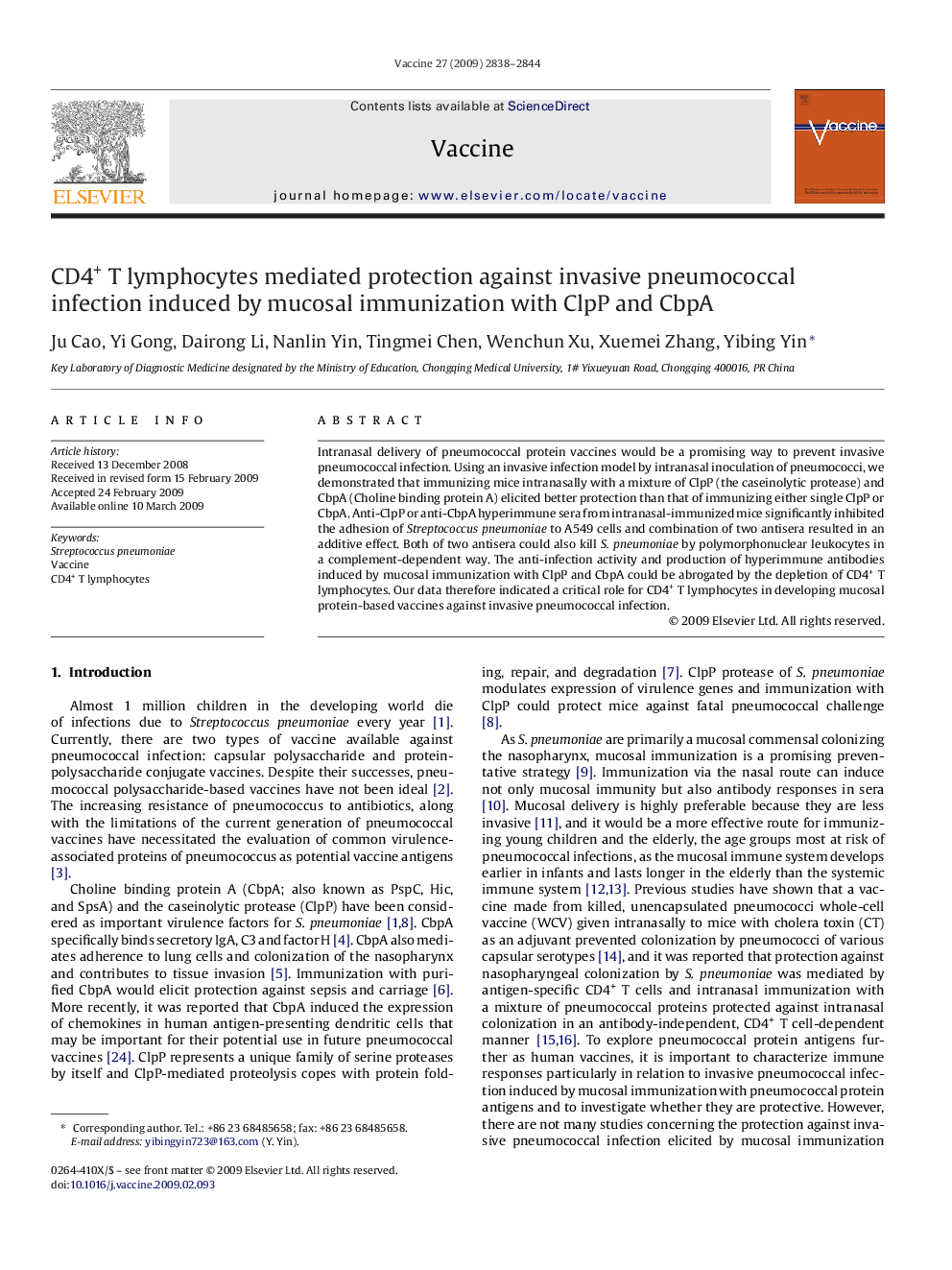| Article ID | Journal | Published Year | Pages | File Type |
|---|---|---|---|---|
| 2405645 | Vaccine | 2009 | 7 Pages |
Intranasal delivery of pneumococcal protein vaccines would be a promising way to prevent invasive pneumococcal infection. Using an invasive infection model by intranasal inoculation of pneumococci, we demonstrated that immunizing mice intranasally with a mixture of ClpP (the caseinolytic protease) and CbpA (Choline binding protein A) elicited better protection than that of immunizing either single ClpP or CbpA. Anti-ClpP or anti-CbpA hyperimmune sera from intranasal-immunized mice significantly inhibited the adhesion of Streptococcus pneumoniae to A549 cells and combination of two antisera resulted in an additive effect. Both of two antisera could also kill S. pneumoniae by polymorphonuclear leukocytes in a complement-dependent way. The anti-infection activity and production of hyperimmune antibodies induced by mucosal immunization with ClpP and CbpA could be abrogated by the depletion of CD4+ T lymphocytes. Our data therefore indicated a critical role for CD4+ T lymphocytes in developing mucosal protein-based vaccines against invasive pneumococcal infection.
